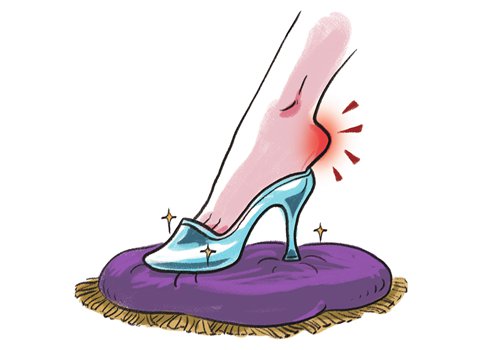Multi-party system misfit in Asian nations
Global Times
1529950806000

Illustration: Liu Rui (Photo: Global Times)
Malaysian Prime Minister Mahathir Mohamad recently claimed that investigators have an "almost perfect case" against former leader Najib Razak, who will face charges of bribery, theft of government funds and embezzlement for his role in the 1Malaysia Development Bhd scandal. In less than 10 days after his election debacle, Najib was assumed to be a suspect.
The Najib case is not the only one. Former South Korean president Park Geun-hye faces fines of 18 billion won ($16.8 million) imposed by the court on April 6 in addition to a 24-year prison sentence. Before Park, nearly all South Korean presidents ended up badly. Former Thai prime minister Yingluck Shinawatra was sentenced to five years in prison by the Court and her brother, another former prime minister Thaksin Shinawatra has lived in exile. In the Philippines, former president Benigno Aquino III was charged with alleged corruption and usurpation, and his predecessor Gloria Macapagal Arroyo was released from detention in 2016 after nearly five years in a military hospital.
Given that so many Asian statesmen have been jailed with political power shifts, people wonder whether there is something wrong with the Western party system applied to these countries. For a long time, the opposition in a multi-party system has been referred to as "Leader of Her Majesty's Loyal Opposition" in Western democratic theories and the change in political power due to elections has been seen as the biggest advantage of Western democracy. However, in some Asian countries and regions with the Western democratic models, leaders go to prison after transferring power. Is it because these countries have yet to assimilate Western multi-party democracy or the same system is dividing their politics?
South Korea, Thailand, the Philippines and Malaysia have implemented the Western political model for more than half a century and it is hard to say that their politics is not adequately Westernized. More importantly, with the Western multi-party democracy developing in these countries for decades, their politics has been intensely polarized. Western multi-party politics introduced in these countries has its problems and with its development, political divisions will increase.
Western parties developed from parliamentary politics. The initial aim of Western parties is to carve up power which leads to sectarianism. The West calls the earlier political groups caucus parties. In early US history, George Washington, Thomas Jefferson and James Madison all had experience of sectarian party politics. The Western party system was born with the tendency to divide politics and society.
The division of the Western party system was limited in the early days in the West. Western nations became sovereign states before the advent of the party system. People were not politically conscious and there was political competition only among elites who had common interests and crossed social circles. During the time, it was easy to reach basic consensus among elites and the concept of "Leader of Her Majesty's Loyal Opposition" was formed. "Her Majesty" and "country's interests" just represented the common interest of the elites.
With the industrialization of the West, people became politically conscious. Political divisions became obvious and party politics controlled by minority elites was challenged. To win public support for election, Western parties have become formal big tent or catch-all organizations. Every party claims to represent the public interest. Hence, it becomes difficult for the elites to reach internal consensus. After the Cold War, a new phenomenon "vetocracy," - a term coined by Francis Fukuyama - emerged in Western party system. Although the tradition of "Leader of Her Majesty's Loyal Opposition" remains, it has limited influence.
Why does division in Western party system seem more serious in non-Western countries? Due to the mode of production, history and culture, political families have a long history in Asia and the mix of family politics and the Western multi-party system exaggerates partisan competition. Besides, except Thailand, all the other Asian countries mentioned above became independent after World War II. Political party system and sovereignty were established almost simultaneously and consensus among the elites has not been achieved. Relations between parties are strained. Under such circumstances, the Western multi-party system only works to aggravate societal divisions.


